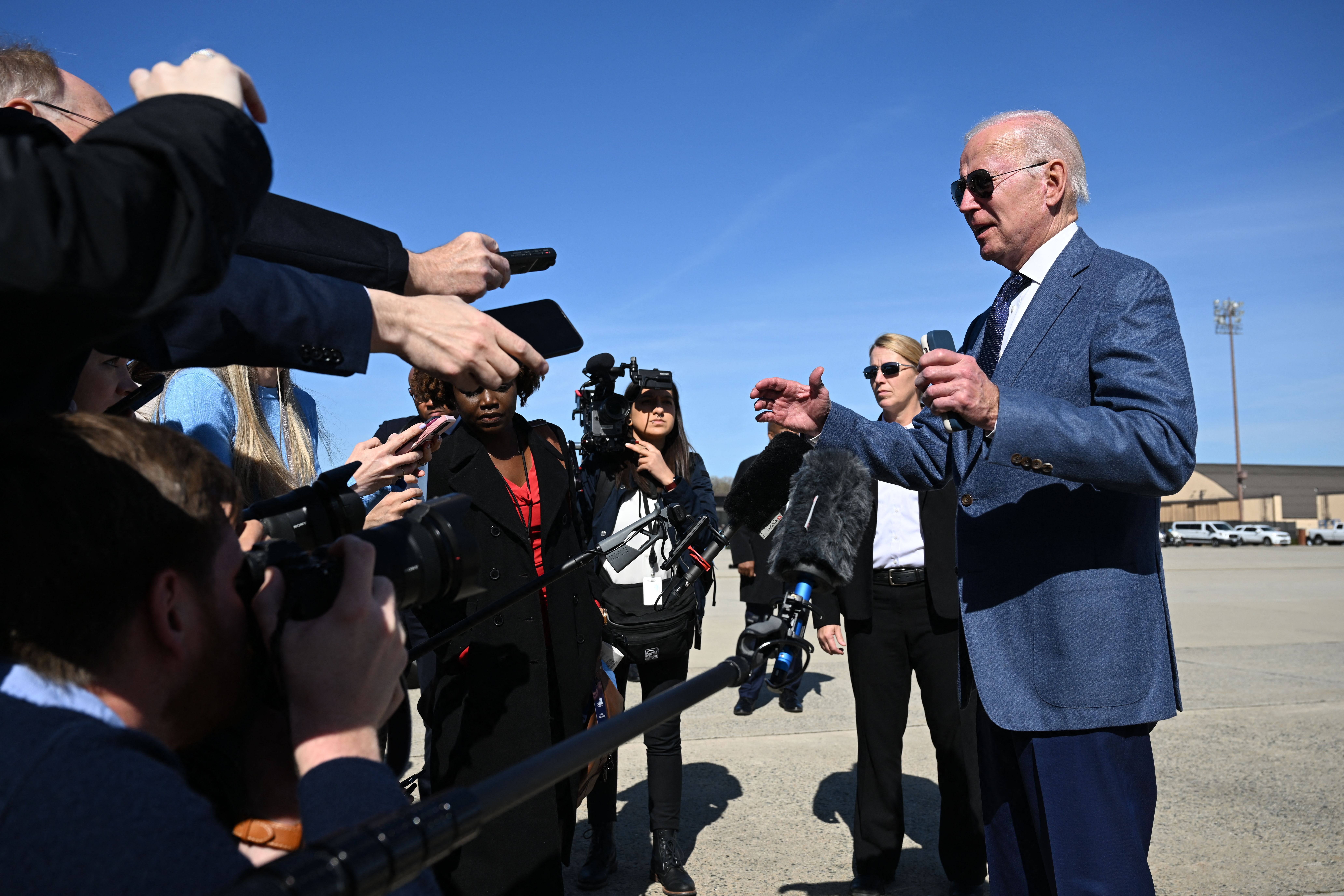President Joe Biden said Tuesday that his top priority on his trip to Ireland is to “keep the peace” in Northern Ireland.
Biden made the remarks before departing for a four-day trip to the United Kingdom and Ireland.
The number one priority of the trip is to “make sure the Irish accords and the Windsor agreement stay in place, to keep the peace. That’s the — that’s the main thing. And it’s look like we’re going to — keep your fingers crossed,” Biden told reporters.
He is set to meet with Prime Minister Rishi Sunak of the United Kingdom, President Michael Higgins of Ireland and Taoiseach Leo Varadkar of Ireland, and is scheduled to make remarks about the 25th anniversary of the Belfast/Good Friday Agreement. (RELATED: Not A ‘Snub’: White House Refuses To Say Why Joe Biden Is Not Going To King Charles’ Coronation)
“President Biden cares deeply about Northern Ireland and has a long history of supporting peace and prosperity there. As a U.S. senator, Joe Biden was an advocate for how the United States can play a constructive role supporting peace,” White House National Security Council spokesman John Kirby said.

US President Joe Biden speaks to the press before boarding Air Force One, as he departs for Northern Ireland, at Joint Base Andrews in Maryland on April 11, 2023. (Photo by Jim WATSON / AFP) (Photo by JIM WATSON/AFP via Getty Images)
The trip will also be an opportunity for Biden, who has Irish roots, to get further acquainted with his ancestry. He intends to visit County Louth, where his ancestors lived before moving to America, and will deliver remarks at St. Muredach’s Cathedral, which his great-great-great-grandfather Edward Blewitt sold 27,000 bricks to in 1827, Kirby said.
“Those bricks were used to construct and support the great cathedral and helped Edward afford to buy tickets for himself and for his family to sail together to America decades later in 1851,” Kirby added.
Tensions spiked in Northern Ireland over the Easter weekend after petrol bombs were thrown at a parade commemorating the 1916 Easter Rising.


